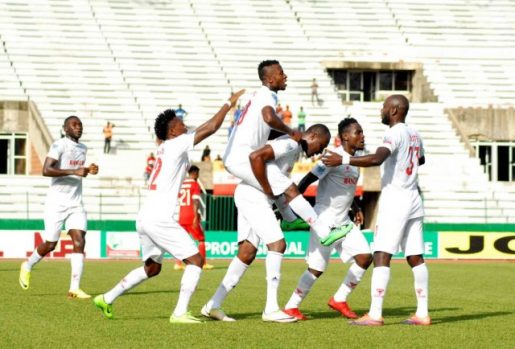The announcement late in October of an NFF Reform Committee to be led by the Football Federation’s Vice President, Seyi Akinwunmi, and stacked with names of football notables is not just a promise made by the NFF but also a Nigerian dream that has festered going back to, at least, former President Goodluck Jonathan’s ill-advised plan to suspend Nigerian football after the 2010 World Cup debacle.
That reform is now, again, on the table for discussion is indeed monumental. Yet, there is a sense that this move towards reform is just one baby step and the main challenge is down the road – the willingness and commitment to implement. It is that latter stage that will determine the legacy of this current NFF regime. Make no mistake about that.
Reform, of course, has become the currency that underlines a certain feeling of progressiveness. Reform is, to state the least, the fashionable word used by FIFA after the organisation’s image was severely dented by the arrest and indictment of its officials in May of 2015.
That the NFF would put forward the word Reform now is certainly a sign of progress. But what should it really mean? What should Reform signify for Nigeria? While I am not privy to how the NFF defines or will define the scope of reform, at least I can take the liberty to advance some dream and hope.
While Pinnick pointed the football statute as requiring reform a few years ago, reform should mean more than merely tweaking the statutes. Reform should include a major discourse and strategies that advance Nigeria’s football across a wide-range of phases with benchmark for results that can be tangibly measured. This is serious work.

If former President Jonathan had thought it necessary to suspend Nigeria’s international football for two years because of the need for reform, then one must surely note that the Reform Committee’s work is one for the ages. Its effects must put a deeply engraving stamp on Nigeria’s football plans and outcomes in several years yet to come.
For starters, here are fundamental principles of work that one hopes may be considered as this committee begins to meet stakeholders and to seek for lasting solutions. The feedback, complaints, and recommendations that the committee receives must headline the way forward. But while acknowledging that essence, one hopes that the frame of work should hopefully considers the following:
Focus on Internal Football – Reform must focus on reviving internal football. This means all football under NFF’s watch. Local football has slowly died since the exodus of the country’s major players in the 1980s and since the liberalization of broadcasting brought foreign football to local bars condemning local football to secondary status. Therefore, the fact that ‘Nigeria’ has become a non-factor in local and continental football has to be considered problematic.
Consider Systemic Issues – Football solutions are not going to be effectively solved by isolating issues because they are often connected and, thus, systemic. The fact that states own most of Nigeria’s elite football teams and state appointees treat state funds like state funds in prebendalist ways across the nations underline the breakdown of compensatory system for football labor.
The outcome is poor motivation and it is demonstrated by poor results on the field. Connections between state, its appointees, pay behaviour, and football production is just one of the systemic connections that bedevil the local game.
Avoid Imposition of Foreign Solutions – It will be easy to copy reform blueprint from Germany and elsewhere. The temptation is there when one considers the progress in those environments. However, to do so will be a monumental shame. Solutions work only when the context is appropriate and that should be a cautionary tale. Trying to fix a round peg in a square hole isn’t the way forward.
Nigeria’s Reform must truly be based on Nigeria’s context.
Consider Fans as Central to Solution – A key aspect of reforming Nigeria’s football is putting fans, consistently, back on the terraces. To do this, the committee should understand that football’s value is based on its ability to provide entertainment. If fans do not consider Nigeria’s football entertaining and safe, they will not return. Yet without them, football is dead.
Make no mistake about that. Therefore, fans must be considered central to any reform. Importantly, there is a glimmer of hope about the possibility of reviving fan interest in local football. All you have to think of is how the audience largely deserted Nigerian music and movies until they returned en masse to support a repackaged local music along with the rise of Nollywood, respectively.
Football can experience the same recovery. This is the big chance and opportunity.
Solve the Perennial State v Football Squabbles – Of course, one of constant problems in Nigerian football is the state v every one else squabbles. It is a situation that has seen FIFA threaten Nigeria with numerous bans. The committee should find ways to institute an independent Nigerian football by developing a framework that enthrones private interest and investment in football, forcing government domination into retreat.
The key principles stated here are essential but they are by no means exhaustive. What they represent are starting points and the Reform Committee stands at the door that opens to a historical period for Nigeria’s football. The committee must take this opportunity with aplomb and chart a path that will be memorable and forever effective. They should get on with it.









